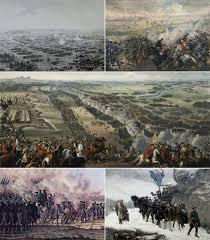Charles XII, also known as the Warrior King, was the King of Sweden from 1697 to 1718. He was part of the House of Palatinate-Zweibrücken, a branch of the House of Wittelsbach. His reign was marked by the Great Northern War, and he is best known for his military prowess and his role as a war leader.
Charles XII ascended to the throne at the tender age of 15 following the death of his father, Charles XI. Despite his youth, he showed a remarkable aptitude for military strategy and statecraft. His reign began with an attack on Sweden by a coalition of neighboring powers, including Russia, Poland, and Denmark, in what came to be known as the Great Northern War.
Undeterred by the daunting task at hand, the young king led his troops into battle with remarkable courage and skill. He scored a series of stunning victories, including the Battle of Narva in 1700, where he defeated a much larger Russian army. This victory cemented his reputation as a formidable military leader and earned him the moniker 'the Warrior King'.
If you want to know about Window to Europe kindly visit to the given link.
While he was a brilliant military strategist, Charles XII was also a pragmatic ruler. He understood the importance of maintaining the morale of his soldiers and the support of his subjects. He often shared the hardships of his soldiers, marching alongside them in harsh weather and sleeping in the open field.
However, despite his early victories, Charles XII's fortunes began to wane as the war dragged on. His decision to invade Russia in 1709 ended in disaster at the Battle of Poltava, where his forces were decisively defeated. He spent the following years in exile in the Ottoman Empire before finally returning to Sweden in 1715.
Charles XII was killed in 1718 during the siege of Fredriksten, Norway, under circumstances that remain a mystery. His death marked the end of Sweden's status as a major power in Europe. His reign is remembered for his military successes and for the changes he brought to Sweden, including modernizing the Swedish army and introducing new administrative reforms.
Charles XII's legacy is a complex one. Some view him as a heroic figure, a brilliant military leader who defended his kingdom against overwhelming odds. Others see him as a reckless adventurer, whose overambitious foreign policy led to the decline of Swedish power. Regardless of one's view, there is no denying that Charles XII left an indelible mark on Swedish and European history.



